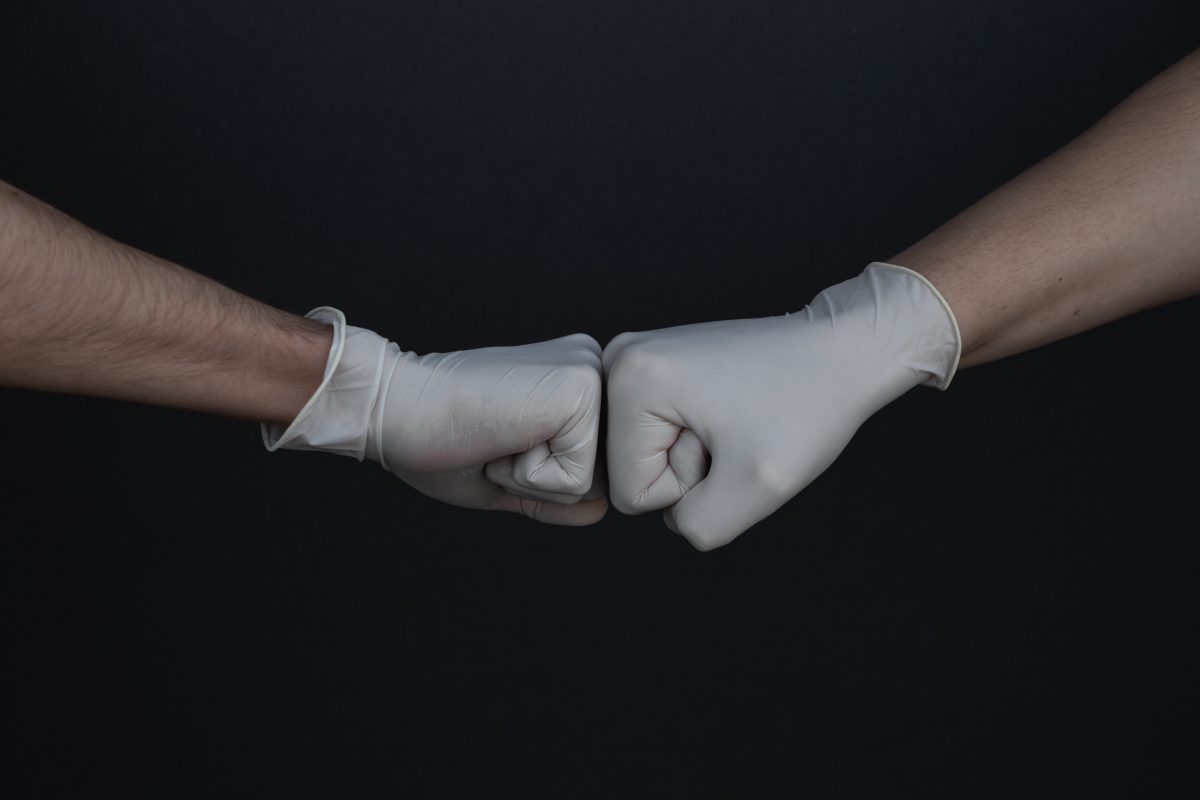
An Insider’s Look at Working in an Israeli Corona Ward
Naama Barak via Israel21c – Physiotherapist Dania Hofi talks to ISRAEL21c about donning protective gear, treating Covid-19 patients and the rehabilitation that awaits them.
“Entering the isolation wards is putting yourself at risk. We feel on the front lines.”
This is what treating people suffering from coronavirus is like for Dania Hofi, a physiotherapist who runs Sheba Medical Center’s school of physiotherapy.
In regular times, she doesn’t work in the wards – but once the pandemic hit Israel, she volunteered to treat Covid-19 patients.
“Everyone there is giving their heart and soul,” she says. “There’s a personal risk but it’s part of the dedication that characterizes us as professionals.”
Usually associated with things like back pain or injured athletes, physiotherapy also deals with respiratory treatment and rehabilitation. While this less-than-glamorous field is usually relegated to the backbenches, Covid-19’s adverse effects on patients’ respiratory systems has brought it forward.
“The respiratory field is not very popular, but if there’s a field in physiotherapy that really deals with matters of life or death – this is it,” Hofi says. “Unfortunately, it’s very much in demand nowadays.”
This demand started when Sheba opened its first coronavirus ward. At first, physiotherapists communicated with patients via telerehabilitation, giving them exercises and instructions from afar.
But as the number of patients grew and their condition worsened, it was time to step in.
“We see all types – we see the people who have corona and don’t have any symptoms at all in their respiratory system,” Hofi explains. “There are those who experience it lightly – perhaps a little shortness of breath while under stress, a dry and persistent cough.
“Then there are the patients listed in satisfactory condition who fail to oxygenate properly,” she says. “They work very hard to absorb the oxygen. It’s tiring to breathe like a chimney all the time, and the respiratory muscles grow weaker and then comes the moment that they require a ventilator. That’s a very difficult situation with a high mortality rate.”
Patients on the Verge
In their treatment of coronavirus patients, physiotherapists have several goals. One is to ease breathing and reduce shortness of breath – this is done with breathing exercises, relaxation methods, placing patients in various positions and using different accessories.
Another goal is to improve patients’ oxygen saturation so that their condition doesn’t deteriorate. And when a patient does require being hooked up to a ventilator, the focus turns to trying to prevent complications and to help with the weaning process.
Because coronavirus patients can deteriorate so quickly, physios need to make sure they don’t tire them out.
“There are patients who really are on the verge, and all it takes is for you to do a few innocent exercises with them and it’s beyond their capabilities,” she explains. “We keep this danger in mind.”
Meanwhile, therapists also treat patients for more general difficulties associated with long-term hospitalization.
“The disease isn’t over in a day or two, and patients lie down for a long time,” Hofi says. “Even if their condition isn’t that severe, they feel really ill and are confined to bed for a long time. Even if you put a young man in bed for a long period, it will be difficult for him to get up and walk.”
Treatment Without Touching
While in regular times treatment is hands-on, this isn’t a possibility for patients in isolation wards.
“It doesn’t look like regular treatments,” Hofi explains. “It’s all about touch, closeness. We spend a lot of time with the patients. And suddenly you either treat from afar or you wear a suit through which you can hardly see your eyes. It’s against our nature.”
While medical staff are required to limit patient contact as much as possible, therapists find themselves torn between adhering to safety guidelines and helping patients reach for their food, for example, or connect their phones to chargers.
“We’re also seeing a lot of sad things – the terrible loneliness of the patients.”
“It’s work that you take home with you, big time,” Hofi says. “I’m an old hand, and I’m telling you it’s not easy at all. We really are trying to do our best.”
“Happily, I can point to people who do recover and that raises my morale,” she adds.
Sharing Insights
Coronavirus’ long-term effects on patients remain unclear.
“I can tell you that the people I’ve seen recovering have recovered well. They go back to themselves,” Hofi says. “Does it leave respiratory limitations? That’s a question I can’t answer, but we’re thinking about it.”
A bright side to working on the global pandemic, Hofi says, has been the spirit of mobilization and cooperation.
“I’ve been very touched by the cooperation between physiotherapists here in Israel and also across the world,” she says. “Information is being put out quickly to share insights. Everything is being done very quickly to meet the requirements.”
A physiotherapist from China with more COVID-19 experience, for example, has been passing on his insights to Israeli colleagues, while on a local level people are putting forward their knowledge and expertise.
“I think Israel really can serve as an example,” Hofi says. “There’s room for improvement, but overall we deserve a pat on the back.”
And, she adds, “Thank God it’s not total chaos like what we’re seeing elsewhere. It’s under control. That also needs to be said.”
To read the original article click here.
For more articles from Israel21c click here.






